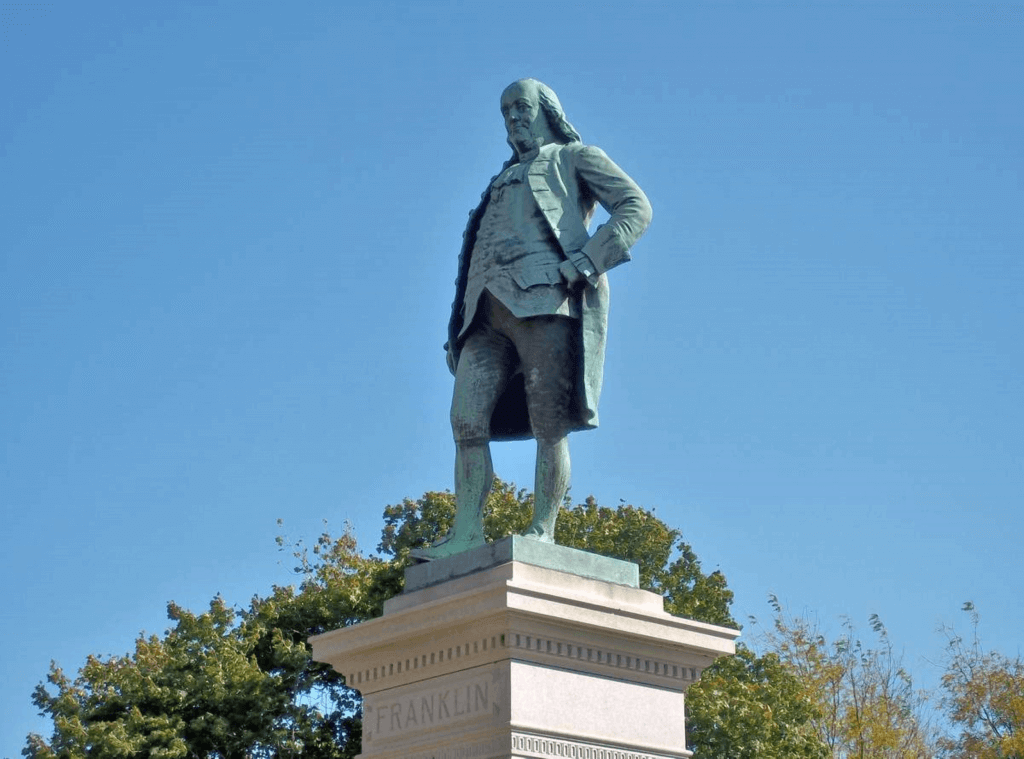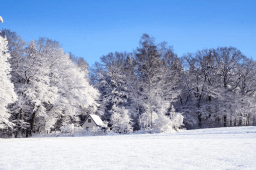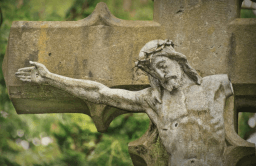Ben Franklin Day
(Also known as Benjamin Franklin Day)
Ben Franklin Day is observed next on Sunday, January 17th, 2027 (357 days from today).

January 17 every year is celebrated worldwide as Benjamin Franklin Day. Born on this day in 1706 to a soap and candle maker in England, Benjamin Franklin grew up to become one of the most famous and celebrated Americans in history.
History of Ben Franklin Day
Founding father Benjamin Franklin was born on this day in 1706, in Boston, today's Ben Franklin Day. He is a man of many knowledge, and expert in many fields. Some of the titles that can be given to him are inventor, scientist, politician, diplomat, citizen activist, printer, author, postmaster and cartographer. He has also founded or been a member of many organizations and groups.
Franklin was the youngest son of a soap and candle maker, named Josiah Franklin, and Josiah's second wife, Abiah Folger. Elder Franklin wanted his son to follow in the footsteps of a preacher, but did not have the money to send him to school. Benjamin only attended school until the age of ten, when he began working full-time in his father's shop. At the age of 12, he was sent as an apprentice to his brother James, a printer. James started The New England Courant in Boston when Benjamin was fifteen years old. Benjamin wanted to be printed on paper, but James wouldn't allow it. So he wrote letters in the name of Silence Dogood, a fictional widow, and slid them under the print shop at night. Fourteen letters he wrote have been published; they gave advice and were filled with important observations about the world. Benjamin eventually confessed to writing them, and James wasn't pleased. Then, after being harassed and beaten by his brother, Benjamin fled to New York, and then to Philadelphia in 1723.
In Philadelphia, Franklin had worked as an apprentice printer. Then he went to England to do printing work for several months. He returned to Philadelphia and helped out with a printer, but ended up taking out a loan and starting his own printing business a few years later. Franklin purchased the Pennsylvania Gazette in 1729, which became the most widely read newspaper in the colonies. He printed it and contributed parts under the alias.
In 1728, Franklin had a son, William; People don't know who the mother is. In 1730, he married Deborah Read. It was an ordinary marriage, as Read's first husband abandoned her. The Franklin family had two children: Francis, born in 1732, died at the age of four from smallpox. Sarah was born in 1743.
The Library Company, the nation's first registered library, was founded by Franklin in 1731. He began publishing Poor Richard's Almanack in 1733, under the pseudonym Richard Saunders. Vivid text and witty aphorisms set it apart from the Books of Almanacs, and it was in print for 25 years. Philadelphia's first fire department, the Union Fire Company, was organized by Franklin in 1736. Franklin also worked on environmental clean-ups in the city, launching projects and campaigning for the streets. paving stones and lighting. The first scientific society in the country, the American Philosophical Society, was founded with Franklin's help. In 1751, he gathered another group of people to found the Pennsylvania Hospital.
Franklin's brilliant mind came up with many inventions. His kite and pivotal experiment in 1752 proved that lightning is electricity, and he was also the inventor of the lightning rod. He came up with other terms related to electricity that we still use today, such as "battery". He invented a fireplace called the "Franklin stove." Compared to the common fireplaces of the time, it gave off more heat and used less fuel. Franklin would like his invention to serve free for people. Franklin invented bifocals using for reading. He even invented an instrument, the harmonica, for which Beethoven and Mozart wrote music. He charted the Gulf Stream and named it, and proposed the idea and helped design the first coin in the United States.
In 1757, Franklin went to England to represent the Penn family as to who should represent the colony. Until 1775, most of his time was spent in England. He served as colonial representative for Pennsylvania, Georgia, New Jersey and Massachusetts. His wife, Deborah, died in 1774, while he was still in London.
Franklin was initially a loyalist, but after the Stamp Act 1765, his views changed. He testified before Congress, helping to convince members of that body to repeal the law. Then he became embroiled in what became known as the "Hutchinson Affair." Thomas Hutchinson, an appointed British governor, wrote letters calling for a reduction in the freedoms of the colonists. Franklin received the letters and sent them to America. He was publicly condemned, and soon returned home.
He was elected to the Continental Congress for the second time, and was a member of the five-man committee that drafted the Declaration of Independence. He is also the signatory of the Declaration. He was the first Postmaster General of the United States of America; long after his death, he was honored by being placed on the first postage stamp of the United States.
He left the US to become the first Ambassador to France. During this time, he helped secure a treaty with them in 1778. He also helped secure loans during the war. When the gunfire died down, he was present at the signing of the 1783 Treaty of Paris, the treaty that officially ended the war.
Franklin returned home, and became a delegate to the Constitutional Convention; he signed the Constitution, being the oldest person to do so. Although Franklin owned slaves early on, his views changed over time, and in his later years he worked for the abolition of slavery. After suffering from gout and other ailments, he died on April 17, 1790, at the home of his daughter Sarah. His funeral was attended by 20,000 people.
Below are just some of his accomplishments and activities during his life:
- Wrote as Silence Dogood in The New England Courant.
- Published Poor Richard's Almanack for twenty-five years.
- Owned the Pennsylvania Gazette.
- Wrote an acclaimed autobiography.
As an inventor:
- "Franklin stove".
- Proved lightning is electricity and invented the lightning rod.
- Bifocals.
- Swim fins.
- Carriage odometer.
- Armonica.
- Flexible catheter.
As a founder:
- The Library Company—the country's first subscription library.
- Union Fire Company of Philadelphia—the first fire department of Pennsylvania.
- American Philosophical Society.
- Pennsylvania Hospital.
As a politician:
- Colonial representative in England.
- Member of Second Continental Congress.
- First Postmaster General of the United States.
- Helped draft the Declaration of Independence and signed it.
- First ambassador to France.
- Present at signing of Treaty of Paris.
- Delegate to Constitutional Convention and signed Constitution.
How to celebrate Ben Franklin Day
A simple way to celebrate this day is to follow the example he left behind to live life to the fullest. Maybe you can start doing this by following his daily schedule. Learning more about the man can be a good way to celebrate his birthday and his life. You can also read his Silence Dogood letters, or some Poor Richard's Almanack. In addition to reading his own words, you can read books about him or explore resources at the Library of Congress. Once you get bored reading, you can find and watch PBS mini-series on Franklin. Finally, you can plan a trip to visit his grave and the Benjamin Franklin Museum in Philadelphia.
Observed
Ben Franklin Day has been observed annually on January 17th.Dates
Friday, January 17th, 2025
Saturday, January 17th, 2026
Sunday, January 17th, 2027
Monday, January 17th, 2028
Wednesday, January 17th, 2029


